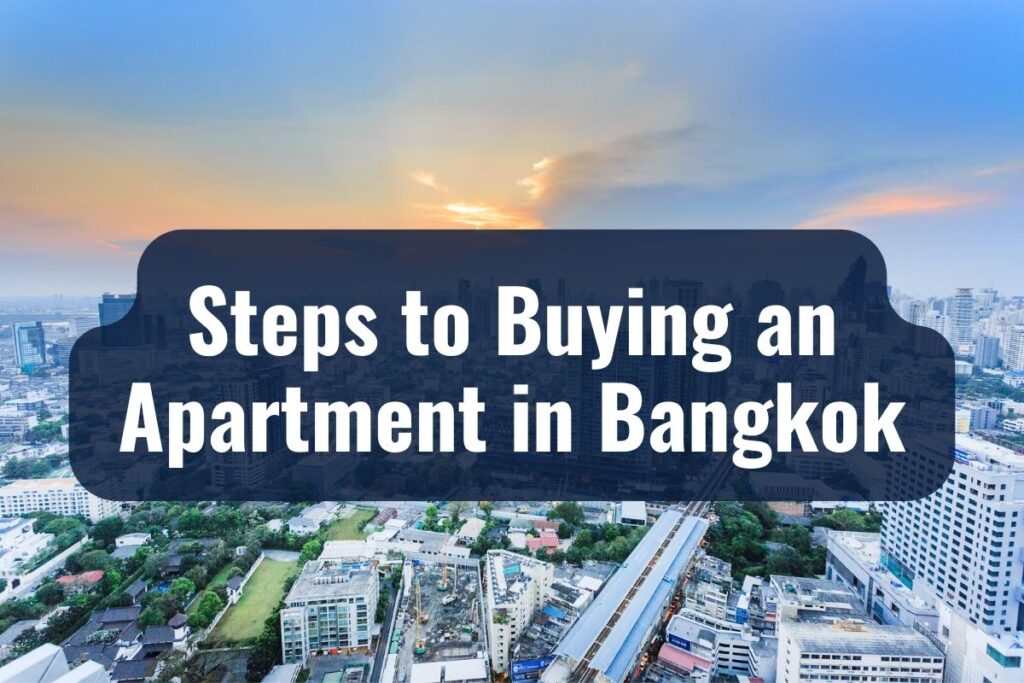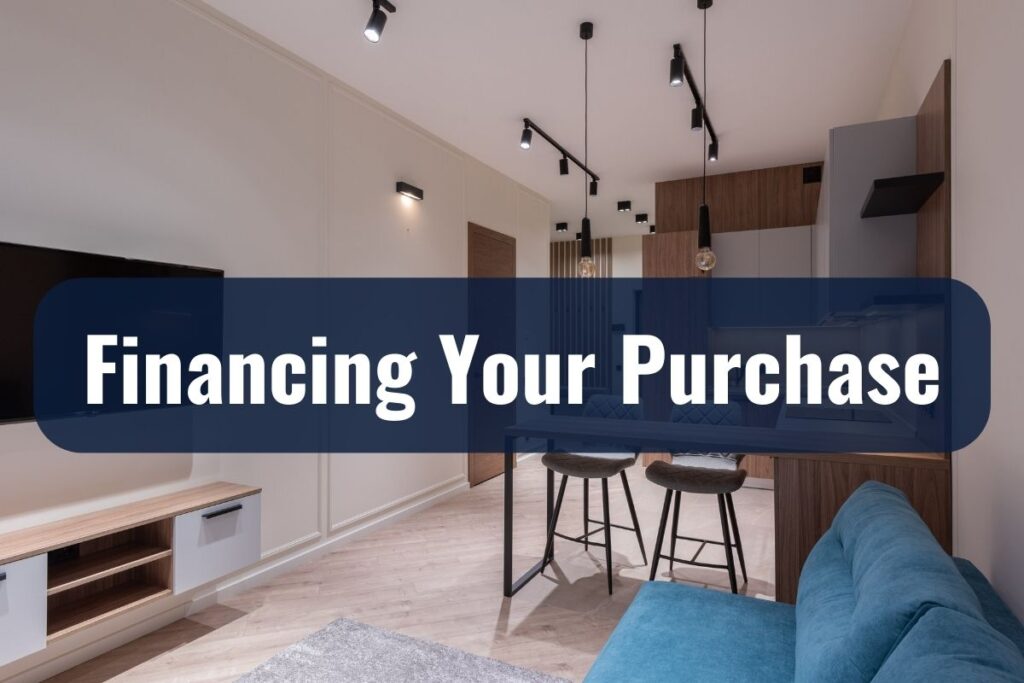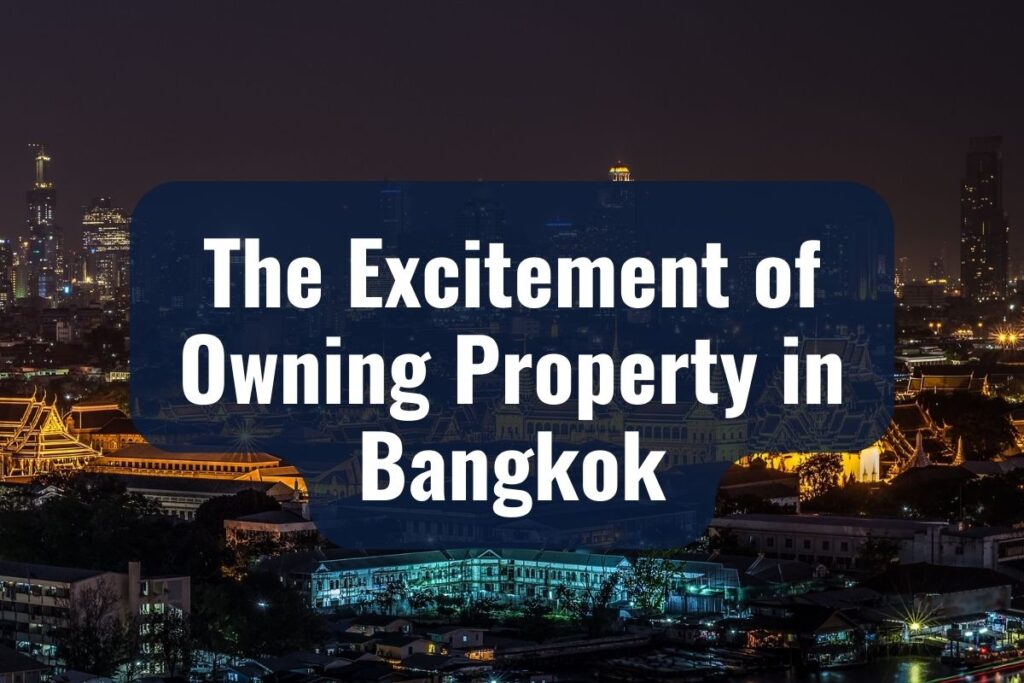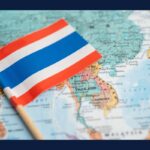Bangkok, often called the “City of Angels“, is a mesmerizing blend of the past and the present. With its golden temples standing tall amidst towering skyscrapers, the city offers a unique juxtaposition of serenity and vibrancy. The Chao Phraya River winds its way through the city, reflecting both the traditional long-tail boats and the gleaming high-rises that line its banks.
As you embark on this exciting journey of buying an apartment in Bangkok, you’re not just investing in property but also in a lifestyle that’s uniquely Thai.
KEY TAKEAWAYS
- Bangkok offers a unique blend of tradition and modernity, making it an attractive location for property investment.
- The Foreign Business Act allows foreigners to own apartments but not land directly.
- Choosing the right location, engaging a reputable agent, and conducting due diligence are essential steps in the buying process.
- While local bank loans for foreigners can be challenging, alternative financing options like developer financing and overseas bank loans are available.
- Integrating into the local community and understanding Thai culture enhances the living experience in Bangkok.
The Rising Trend of Foreign Investment
In recent years, Bangkok has not just been a tourist hotspot but has also emerged as a sought-after destination for real estate investments. Foreigners, enchanted by the city’s dynamic energy and rich cultural tapestry, are increasingly looking to plant roots here.
Whether it’s the promise of a bustling urban life, the allure of its culinary delights, or the prospect of living in a city that harmoniously blends tradition with modernity, the reasons are manifold.
Understanding the Legal Landscape
When considering property investment in Bangkok, it’s imperative to understand the nuances of the Foreign Business Act. This legislation outlines the rights and limitations of foreigners in terms of business and property ownership in Thailand. While the act primarily focuses on businesses, its implications on property ownership are significant.
Foreigners, under this act, are generally prohibited from owning land outright in Thailand. However, this doesn’t mean that property investment is off the table. Instead, the focus shifts to vertical ownership, such as apartments or condominium units. This distinction ensures that while the land remains under Thai ownership, the structures built upon it can be owned by foreigners.
Owning an Apartment vs. Land
Given the restrictions on land ownership, apartments and condominiums have become the preferred choice for foreign investors in Bangkok. When you buy an apartment, you’re purchasing a part of a building, which means you own that specific unit and share ownership of the common areas with other residents.
It’s also worth noting that in condominium projects, foreign ownership is capped at 49% of the total sellable floor area. This means that in any given condominium, Thai nationals must own at least 51% of the units. This regulation ensures a balance between local and foreign ownership, preserving the essence of the community.
Steps to Buying an Apartment in Bangkok

| Step | Description |
| Researching the Right Location | Consider transport, amenities, and expat communities. |
| Engaging a Real Estate Agent | Choose someone familiar with both the local market and foreigner needs. |
| Due Diligence | Ensure the property is free from legal disputes, debts, and adheres to foreign ownership quotas. |
| Making an Offer and Negotiating | Start with a reasonable offer and be open to compromise. |
| Finalizing the Purchase | Understand all associated costs and complete the transfer of ownership at the Land Department. |
Researching the Right Location
Bangkok, with its sprawling urban landscape, offers a myriad of neighborhoods, each with its unique charm and characteristics. Your first step in buying an apartment is to identify a location that aligns with your lifestyle and preferences.
Proximity to Public Transport: Bangkok is known for its traffic congestion. Living near the BTS (Skytrain) or MRT (Metro) can be a game-changer, offering easy access to different parts of the city.
Amenities: Consider the availability of shopping malls, hospitals, schools, and recreational areas. Some might prioritize being close to international schools, while others may value vibrant street markets or serene parks.
Expat Communities: For many foreigners, being near other expats provides a sense of community and eases the transition to a new environment.
Engaging a Reputable Real Estate Agent
Once you have a clear idea of where you’d like to live, it’s time to find a trusted real estate agent. A good agent is invaluable, especially for foreigners unfamiliar with the local property market. They can:
- Provide insights into the best properties within your budget.
- Help navigate the legalities and paperwork.
- Offer a buffer in negotiations, ensuring you get a fair deal.
The Process of Due Diligence
Before finalizing any property purchase, conducting thorough due diligence is crucial. This process ensures that the property you’re interested in is free from any legal disputes, debts, or hidden liabilities.
- Verify the title deed to ensure the seller is the legitimate owner.
- Check for any outstanding mortgages or liens on the property.
- Ensure the condominium adheres to the foreign ownership quota, with foreigners owning no more than 49% of the total sellable floor area.
Making an Offer and Negotiating
With all the preliminary checks in place, you’re now ready to make an offer. Negotiation is an art, and while you want to secure the best price, it’s also essential to approach the process with respect and understanding.
- Start with a reasonable offer, keeping in mind the current market rates and the property’s condition.
- Be open to compromise. While price is a significant factor, also consider other terms like payment schedules or any included furnishings.
Finalizing the Purchase
Once both parties agree on the terms, the next step is to finalize the purchase. This phase involves a deeper dive into paperwork and understanding the financial aspects.
- Draft and sign a Sale and Purchase Agreement, detailing the terms of the sale.
- Understand the associated costs, such as transfer fees, stamp duty, and specific business tax. Typically, these costs are shared between the buyer and seller, but the exact distribution can be a point of negotiation.
- Once everything is in order, the final step is the transfer of ownership at the Land Department. This is where the property is officially registered in your name, marking the culmination of your exciting journey to owning an apartment in Bangkok.
Financing Your Purchase

Local Bank Loans: The Thai Banking Landscape
For many foreigners, the idea of securing a loan from a Thai bank might seem like a daunting task. While it’s true that local banks have traditionally been cautious about lending to non-residents, the landscape is gradually evolving. Some banks now offer loan programs specifically tailored for foreigners, albeit with stricter requirements compared to what’s available for Thai nationals.
When considering a local bank loan:
Eligibility: Ensure you meet the bank’s criteria, which might include a minimum monthly income, work permit requirements, or even a certain visa type.
Interest Rates: Typically, interest rates for foreigners might be slightly higher than for locals. It’s essential to shop around and compare offers.
Loan Tenure: Understand the maximum period the bank offers for loan repayment. This can influence your monthly installments.
Alternative Financing Options
If a local bank loan isn’t feasible, don’t lose heart. There are other avenues to explore:
Developer Financing
Some property developers in Bangkok offer direct financing options for buyers. These can be especially attractive for new developments or pre-sale properties. While the interest rates might be higher than traditional banks, the approval process can be more straightforward.
Overseas Bank Loans
Depending on your home country and its banking relationships with Thailand, you might be able to secure a loan from an international bank. This can be especially relevant for those who have substantial assets or a credit history in their home country.
Personal Savings
While not a financing option per se, using personal savings can be the most straightforward way to purchase property. Without the need to navigate the complexities of loans and interest, you can focus solely on the property’s value and potential return on investment.
The Importance of Financial Planning
Regardless of the financing route you choose, it’s crucial to plan your finances meticulously. Owning property is a significant investment, and understanding the long-term implications of your purchase is essential.
Budgeting: Beyond the property’s price, account for additional costs like maintenance fees, property taxes, and potential renovation or furnishing expenses.
Return on Investment: If you’re considering renting out your apartment, research the potential rental yields in your chosen location. This can help offset monthly loan installments or provide an additional income stream.
Currency Exchange: Given that most transactions will be in Thai Baht, be mindful of currency exchange rates and any associated fees. This is especially relevant for those transferring funds from overseas accounts.
Living in Your New Apartment

Integrating into the Community
One of the most enriching aspects of living in Bangkok is the opportunity to immerse oneself in a diverse and vibrant community. As you settle into your new apartment, take proactive steps to become a part of the local fabric.
Join Expat Groups
Bangkok boasts a myriad of expat groups and clubs, catering to various interests, from culinary adventures to hiking excursions. These groups can be a fantastic way to meet people, share experiences, and get recommendations tailored to a foreigner’s perspective.
Attend Local Events
From traditional Thai festivals to neighborhood gatherings, participating in local events can provide a deeper understanding of the culture and foster a sense of belonging.
Learn Basic Thai
While many in Bangkok speak English, especially in the business districts, learning a few basic Thai phrases can go a long way. Not only is it a sign of respect, but it can also make daily interactions smoother and more enjoyable.
Understanding the Local Culture
Bangkok is a city steeped in tradition, and while it’s modern in many aspects, certain cultural nuances are deeply rooted.
Respecting Traditions
Whether it’s removing your shoes before entering someone’s home or understanding the significance of certain holidays, showing respect for Thai traditions will endear you to your neighbors and the broader community.
Building Relationships with Neighbors
A simple smile, a friendly greeting, or even sharing a homemade dish can be the foundation for lasting relationships. In Thai culture, harmonious living is highly valued, so fostering good relationships with your neighbors can enhance your living experience.
With the excitement of a new apartment comes the practicality of setting up your home and navigating daily life.
Setting Up Utilities
Ensure you have all essential utilities like water, electricity, and internet set up. While most apartment complexes will assist with this, it’s good to be aware of the providers and any associated costs.
Finding Local Grocery Stores
Bangkok offers a mix of local markets and international supermarkets. Explore your neighborhood to find the best places for fresh produce, Thai delicacies, or even imported goods.
Public Transport
If you’re not planning to drive in Bangkok, familiarize yourself with the public transport routes near your apartment. The BTS and MRT are efficient ways to traverse the city, and understanding their routes can make commuting a breeze.
The Excitement of Owning Property in Bangkok

The Pride of Ownership
There’s an undeniable thrill in holding the keys to your very own apartment in Bangkok. Beyond the tangible walls and the view from your balcony, it’s the intangible sense of accomplishment and belonging that truly resonates.
You’re not just a visitor passing through; you’ve staked a claim, made a commitment, and now have a space that you can truly call your own in this bustling metropolis.
The Potential for Property Appreciation
Bangkok’s real estate market has shown consistent growth over the years. With its strategic location in Southeast Asia, robust infrastructure, and thriving economy, the city continues to attract both local and international investors. Owning an apartment here is not just about having a place to live; it’s also a savvy financial move.
Growing Demand: As Bangkok cements its position as a global hub, the demand for quality residential properties is on the rise. This bodes well for property owners, as increased demand often translates to higher property values.
Infrastructure Developments: The Thai government’s continuous efforts to enhance the city’s infrastructure, from expanding public transport networks to developing new commercial hubs, further boost the potential for property appreciation.
The Joy of Customizing Your Space
One of the most delightful aspects of owning an apartment is the freedom to customize it to your heart’s content. Whether you have a penchant for contemporary minimalism or have always dreamt of a home infused with traditional Thai elements, the canvas is yours to paint.
Personal Touches: From choosing the perfect shade of paint to finding that statement piece of furniture, every decision you make adds a layer of your personality to the space.
Renovations and Upgrades: Unlike rented properties where modifications might be restricted, in your own apartment, you have the liberty to renovate or upgrade as you see fit. Whether it’s a kitchen makeover or adding smart home features, the possibilities are endless.
Owning property in Bangkok is a journey filled with excitement at every turn. It’s about the pride of ownership, the anticipation of financial growth, and the sheer joy of creating a sanctuary that reflects your essence. As the sun sets over the Chao Phraya River, casting a golden hue over the city, take a moment to revel in the beauty of Bangkok and the exhilarating adventure that property ownership here brings.


